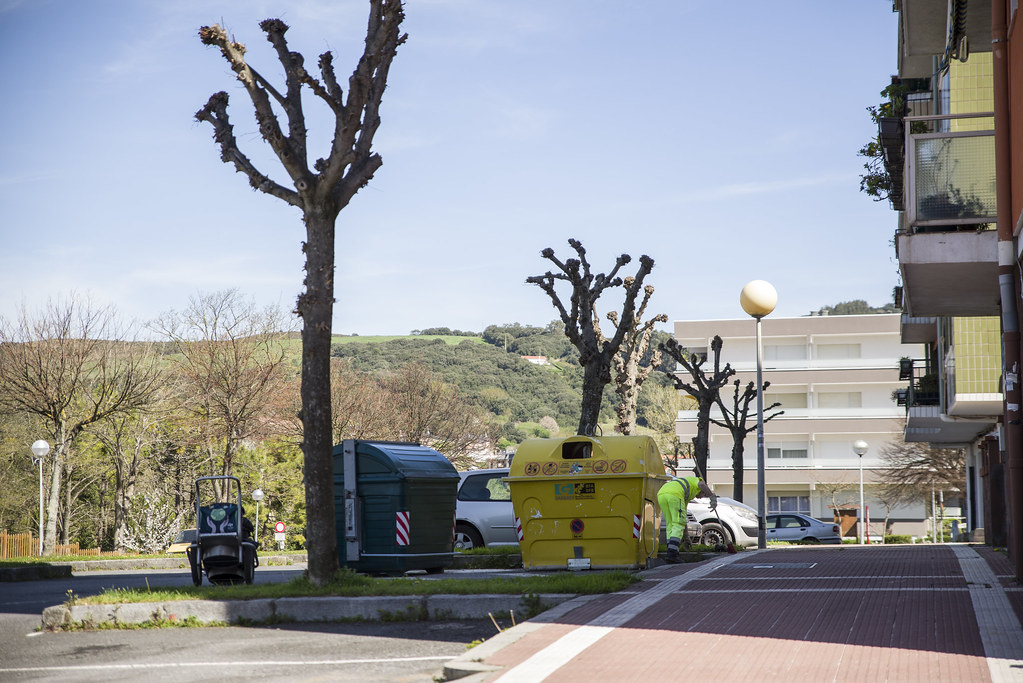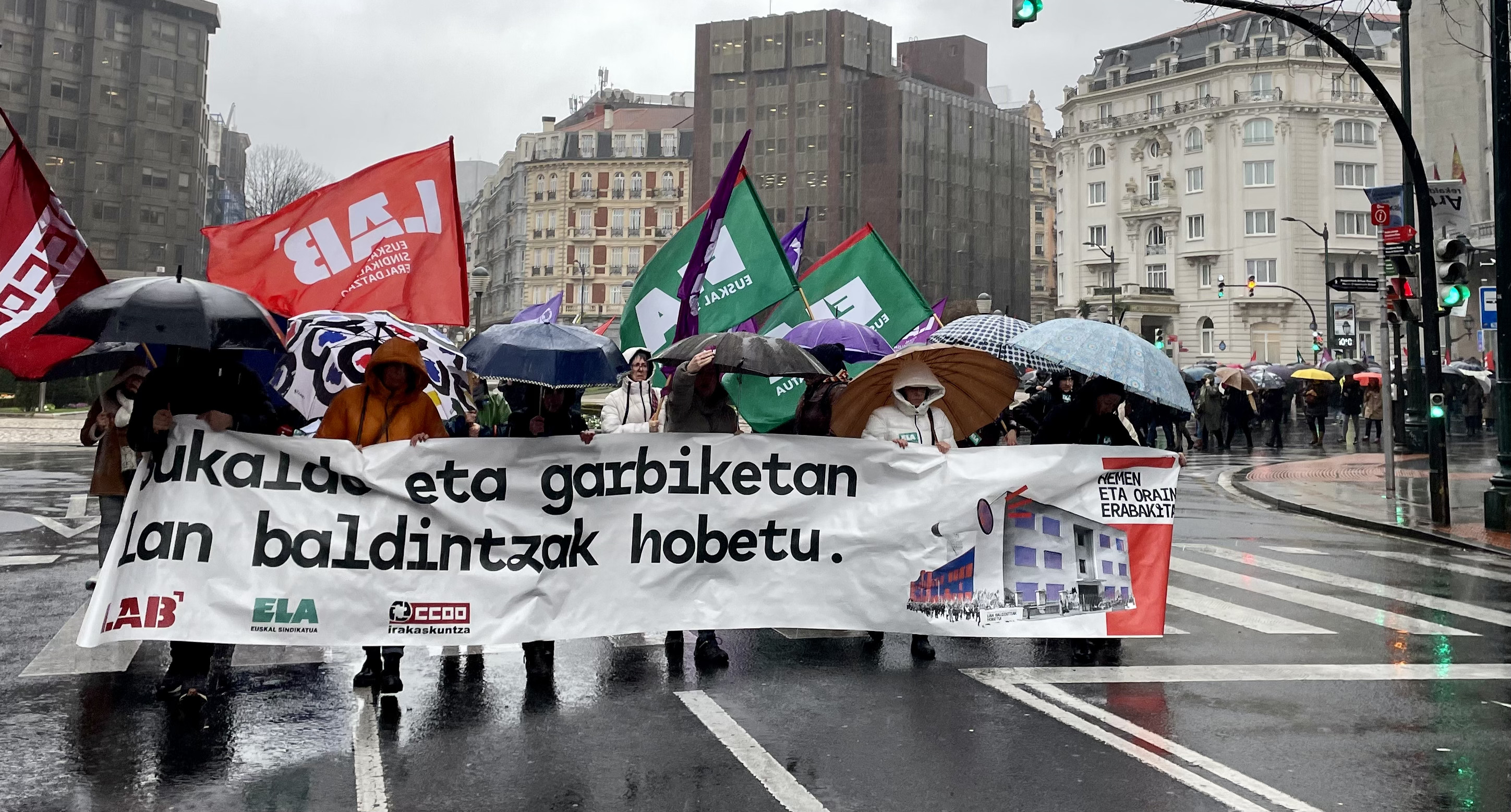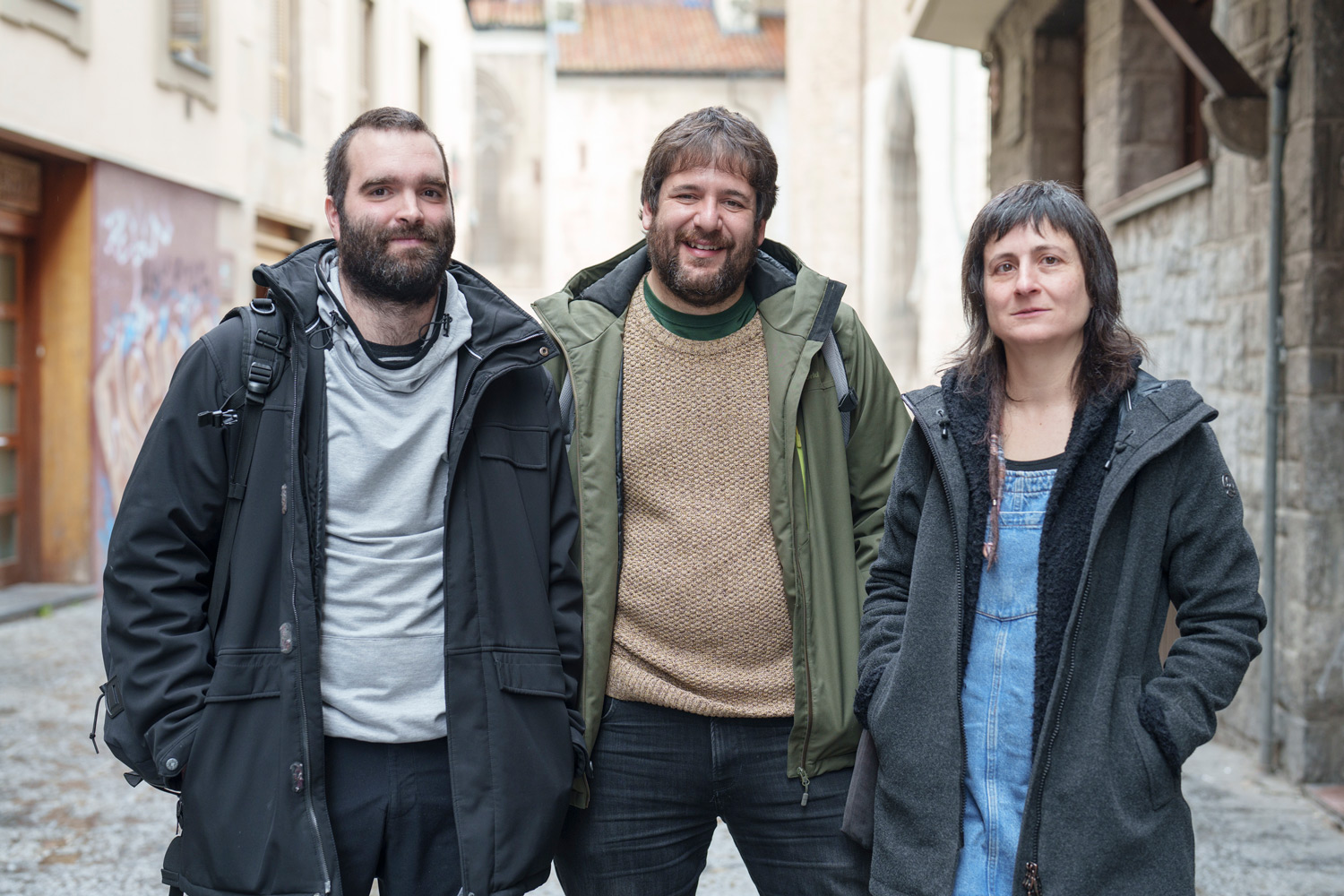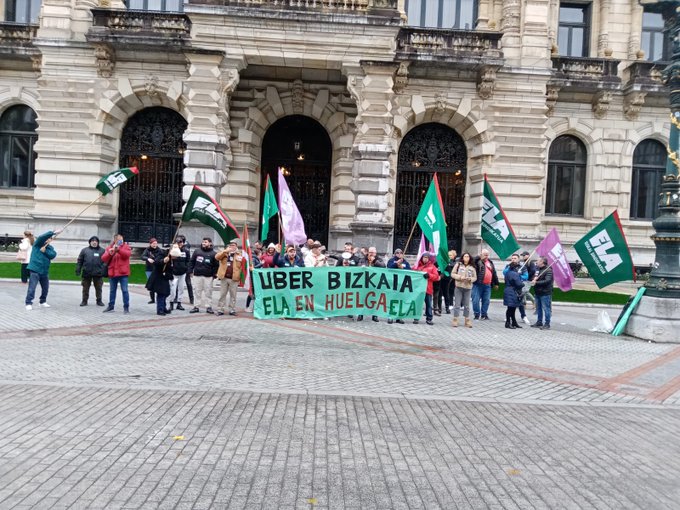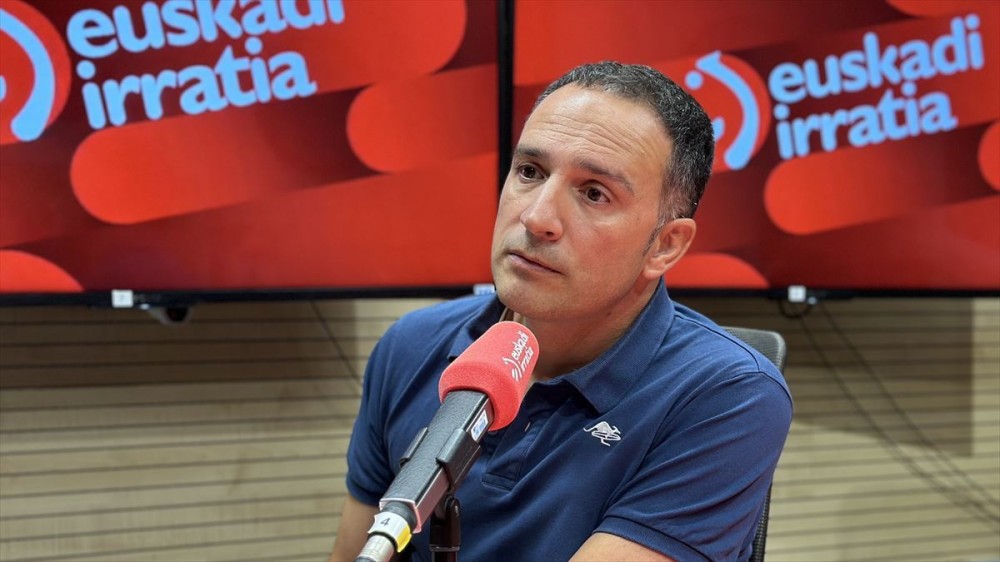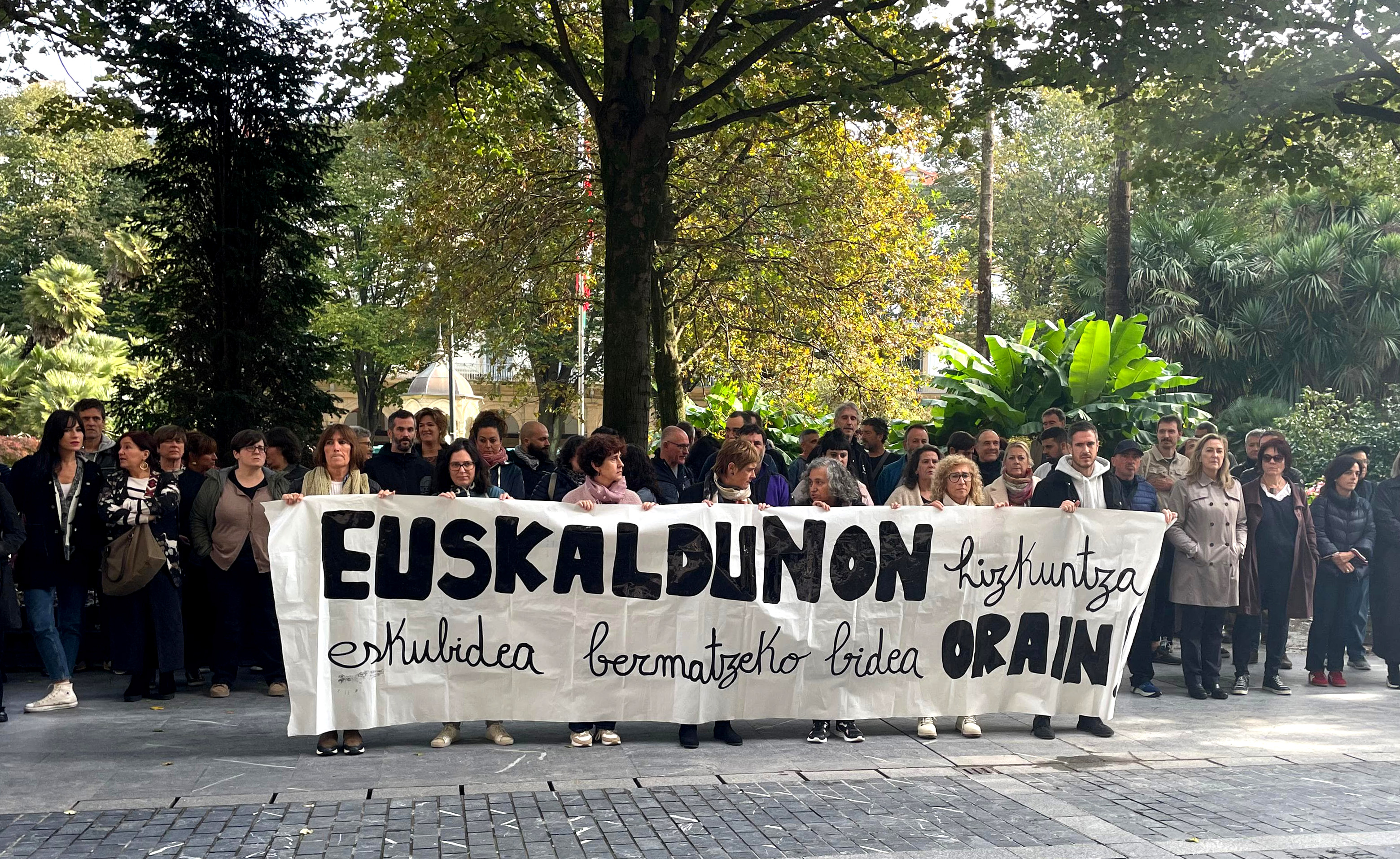"Basque neoliberals love the laws and conventions of Spain"
- We've been around May 1 with Adolfo Muñoz Txiki (Mañueta, 1959) in Vitoria. Since 2008 he has been Secretary General of ELA and in the toughest years of the crisis he has been led by the Abertzale syndicate. It is evident that in attitude and in message it has had to mature in an aggressive environment: “Eight years ago we didn’t expect us to have to live this, but the employer didn’t expect us to give him that much power either.”
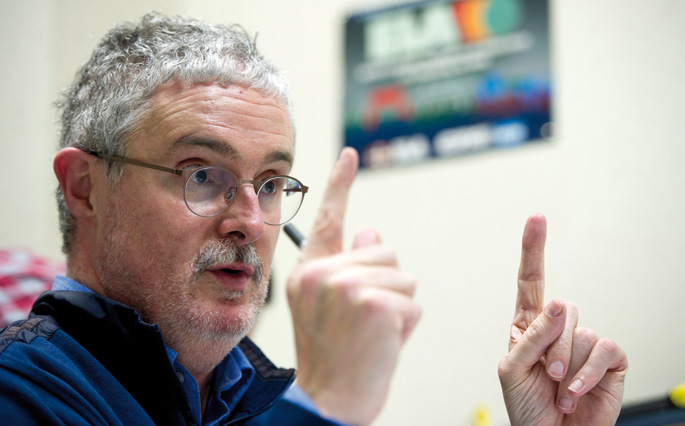
In 2009 you told us that you were not prepared to “pay the crisis to the workers”, seeing what has happened in these seven years, what balance do you make?
We didn't expect economic power to condition politics so much. When ELA is with the employers, governments and some journalists tell us “this is what’s there,” they take us for granted. I would make a bad balance, especially in view of the role that politics has played in this crisis.
This message is also being sent to the citizen, cutbacks have to be made because there is no alternative. Is that the case?
No. There is an alternative to democracy, but there is no democracy. Today in the media it appears that Greece is going to present a pension reform and the Troika said to it, ‘Don’t you imagine that you are going to bring that to Parliament without signing with me?’ Only the things that have given their approval outside democracy come to Parliament.
That is what happens in Greece and in Spain. [Pierre] Moscovici, European Commissioner for Economic Affairs, says that when he says that he has a meeting with the Spanish Government and that he does not know with whom, but for what: An adjustment of EUR 23 billion. The pension reform is being prepared.
Are we still going to have the worst?
This is not over. The PSOE agreement with Citizens makes it clear that they are prepared to take forward the memoranda they have with Europe. There would be no change from there. In the Basque Country: Urkullu says he has met the deficit, which may be true, but how? Making cuts and following neoliberal orthodoxy.
We are seeing bloody cases: Arcelor, Tubes United... You have criticised the Basque Government’s lack of industrial policy.
The Department of Industry subsidizes companies and is acting as a lobby for tax relief.
You can argue that it's to reactivate the economy.
If you want to compete with China, that has no limits and conditions for social cohesion. If corporate income does not pay taxes, will the money only be raised from wages?
In the case of Arcelor there is dumping, yes, but the multinationals do so from China. As regards the electricity rate, a report from the UPV/EHU notes that these companies pay no more than in Germany. But the government has taken these arguments and made it easier: the company has chosen the adjustment here because it is easy and cheap.
They have denounced the “statalization” of collective agreements, without which there is no self-government. It is paradoxical that when we talk so much about sovereignty in the political sphere, we have to denounce it in the social sphere. Why is this happening?
We defend social sovereignty, but not only as an objective, but from today. If it is not social, we will never gain sovereignty. And statehood brings poverty. The Spanish employers have contested the Bizkaia hospitality agreement and, for example, this group will be reduced by 50%. That is very attractive to economic power, including the Mondragon Group, and also to the politician. We have strongly denounced the position of the NIP: In 1994, when Spain wanted to do the same, that party had dignified behaviour, but now it no longer has any interest. Basque neoliberals love the laws and conventions of Spain.
Instead of the People’s Legislative Initiative (ILP) to establish social clauses, the PNV and the PSE have adopted a text that does not oblige them to comply with the closest pact. Can it be an example of that trend you mentioned?
In the course of the proceedings, we are told that it is not possible to explain in the law which conventions companies have to establish. Confesbask is comfortable, the ultra-active means that the agreements here cease to exist and that those of Spain enter into force. Urkullu has thus achieved its deficit target by imposing working conditions of EUR 5 per hour in public construction. A PNV parliamentarian said to us six months ago clearly: “If we accepted the subrogation, we would not be able to bring the tenders to a lower level.” From that point on, we knew that they were going to reject the popular legislative initiative.
But what can be done with the deficit limit that Europe is sending?
The alternative is also taxation. If the average tax burden is applied in Europe, an additional EUR 5.7 billion can be obtained in the CVA and an additional EUR 1.8 billion in Navarre. Of course, if you want to comply with the Spanish public debt and the deficit limit is an obsession for you, without touching on taxation there is no other alternative.
Once the popular legislative initiative has been rejected, what path will you take now?
We have to go where the precariousness is. If you think that closure will end, you are wrong. We are bringing the contents of the ILP to the municipalities, and for example in Durango it has been approved. If you explain to people what's behind, you can slow down what can come.
You have been very critical of the Urkullu Government, saying that you are following neoliberal policies. Counselor Ángel Toña reproached them for being “maximalist” and for the Urkullu himself to live “out of reality”. Why is your relationship so bewildered?
If the priority is neoliberal orthodoxy, there is no room for agreement. The Basque Government wants “clientele” relations. If a partial agreement is reached, that agreement must condition the union’s criticism of the government, and we are not prepared to do so.
They have called for a meeting with Urkullu and Barkos to discuss the staging of collective agreements. Have you received an answer?
Urkullu told us no and we are about to set the date with Barkos.
You mentioned precariousness. There are unemployed young people, outsourced who charge five euros, who perform invisible care work... Are all these people responding to unionism?
No. One example: in construction there are agreements signed in Bizkaia, Álava and Navarre – not in Gipuzkoa – but they are not established, agreements are signed but they are not established. That is why we have asked for guarantees of implementation in the negotiations, but the employers do not want to sign.
And if you can't respond to the needs of the precarious, have you made a reflection or a self-criticism within ALS?
At the moment, this discussion is the main concern within the union. We've made changes in the organization: we've taken the people of the federation to the counties to support what's a very difficult job in companies. If you leave natural soil in companies you are no one and there are examples in the world of syndicalism. We have conducted courses among 3,500 delegates to learn about the situation and to develop precarious maps. We have also launched a campaign that focuses on precariousness and highlights the profits and overwages of companies.
In that campaign, pictures of politicians and businessmen were shown.
But it's very pedagogical. People are aware of manipulation, but that awareness has to become power. In this insignificant world, politics, including the Left, has renounced ideological debate. If the Left is in charge of how to compete in the institutions to gain power, when you start governing you will find only a narrow margin. And the interpellation you're doing from the outside can't be a problem, because there's no out-of-the-left interpellation in the world.
In saying that, are you thinking of Navarre?
Also. In Navarre a programmatic agreement was made and in some areas we are happy because now, like historical memory, we are recognized by the basic things that the UPN regime did not recognize him. Progress has also been made in the area of the Basque Country, not enough, it should be remembered that the Law of the Vascuence is still in force. But with the bad tax reform they have done, there will be no political or social change.
What should be the role of social partners and trade unions in this context?
Behind that is the discrepancy between ALS and LAB. What role should the union play? Should it be instrumental or autonomous? Our main concern is social action, whatever it is in the institutions. I said earlier that the Left has to reflect, but within that we also have to discuss what role we play by those who are not in the institutions. ELA makes it clear that in the institutions there will be no left if social activation is suspended.
The joint trade union action between ELA and LAB seems distant.
The trade union alliance has no future without a trade union base. We see great potential in the ELA-LAB relationship, but he has not been interested in the time when the Abertzale left has been managing power; he has sought the instrumental alliance and has not wanted to question him.
In what cases?
When Bildu entered Gipuzkoa he made the bancarization without giving any explanation – last week we were on ELA and LAB Street – and Kutxabank will be privatized without having any content or participation in that decision. The current representative of the cemeteries, the Guipuzcoan tea party, has dismantled all of the above – there is nothing more to do with the Income Guarantee Aid – but that does not turn Bildu’s tax reform into the tax super reform. Not having, not participating.
Nor do you like the perspective of the participation of the employers.
We are used to hearing on the right that the legitimacy of democracy ends in parliament. Urkullu says that there is “administration, business and people” in this country. In other words, they believe that collective organisations should not have an impact on the relationship between public power and citizenship, nor on the relationship between employers and workers. It joins the employers in that. The left should reflect on what that relationship should be.
Movements have been initiated between citizens to build alternatives to precariousness and the neoliberal model: initiatives of transformative social economy, self-managed projects, small cooperatives… How do you find yourself there?
We can't do things alone. We are promoters of the Alternatiba initiative, work must be done to strengthen the relationship between trade unions and social movements.
Do you feel closeness?
We sometimes perceive a different degree of development in different areas, but it is normal. In any case, people do not rush to ask where the union is, it is a world that has become difficult for us, and if we do not put the bow in the direction of those realities, we will remain in a vegetative state. In order to do so, the trade union needs great complicity with its militants.
They denounced the application of the Mordaza Law to ARGIA and showed their solidarity. ELA believes that the way to deal with this type of unfair law is:
The answer must be social. We wanted to meet with the Interior Minister; one thing is what the law says and another is what the institutions do. At that meeting we wanted to know how such a savage law would be applied, because there is no training protocol to explain to the Ertzaines that we are exercising fundamental rights. But the counselor hasn't caught us, there's an authoritarian trail and an increasing distance.
For these cases, disobedience is a civil action that is increasingly being claimed. A union, beyond strikes and mobilizations, can do what it can to break that path.
Civil disobedience is very important in dealing with the State’s strategy. We're willing to analyze it, but to disobey you need a social mattress behind, because otherwise you risk being anecdotal, and I say this with respect to all the people who disobey.
But how can you practice in the workplace?
For example, when employers and governments refuse to sign guarantees to establish agreements and say “that’s what’s there”, we do not accept it. That is an act of disobedience. You do not accept that the purpose of the union is to decide on economic powers, and from there you give the organisation all the centrality, because you know that it is based on that.
Lehen aldia da Hego Euskal Herriko euskal gehiengo sindikalak armagintza industriaren moldaketaz taldean eta modu publikoan hitz egiten duena. Aurreko hilabeteotan mugimendu antimilitaristak bilera bana egin du lau sindikatuokin, produkzio militarra “sozialki... [+]











